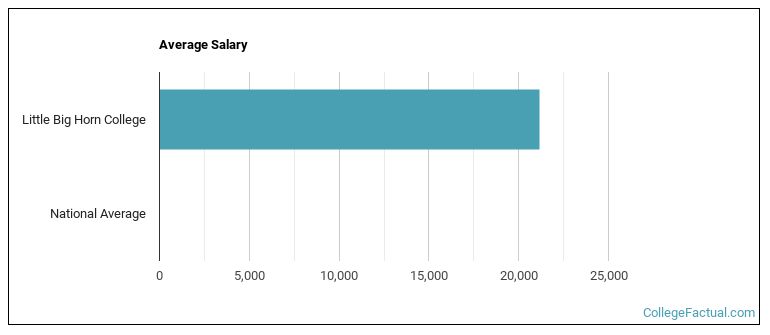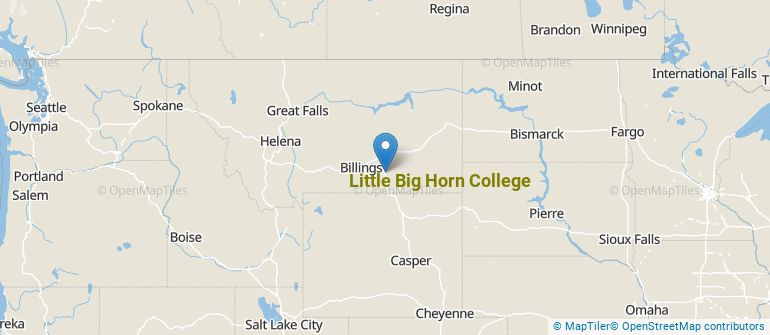 by our College Data Analytics Team
by our College Data Analytics TeamExplore the best ranked schools for the programs you are most interested in.
Little Big Horn College was not ranked in College Factual's 2025 Best Overall Colleges report. This could be for a number of reasons, including lack of data.
Little Big Horn College has an open admissions policy, so you should not have much trouble being accepted by the school. Still, it is important to fill out the application completely and submit any requested materials, which may include proof that you have a high school diploma or the equivalent.
The student to faculty ratio is often used to measure the number of teaching resources that a college or university offers its students. The national average for this metric is 15 to 1, but at Little Big Horn College it is much better at 12 to 1. That's good news for students who want to interact more on a personal level with their teachers.
In addition to the student to faculty ratio, some people look at what percentage of faculty members are full-time as a sign of how much time professors will be able to spend with their students. This is because part-time teachers may not be be on campus as much as their full-time counterparts.
The full-time faculty percentage at Little Big Horn College is 84%. This is higher than the national average of 47%.
The freshmen retention rate of 39% tells us that most first-year, full-time students don't stick around for a second year at Little Big Horn College. Students may have a variety of reasons for this, such as only intending to attend a school for one year while they brush up on certain subjects.
During the 2017-2018 academic year, there were 211 undergraduates at Little Big Horn College with 157 being full-time and 54 being part-time.
The net price is calculated by adding tuition, room, board and other costs and subtracting financial aid.Note that the net price is typically less than the published for a school. For more information on the sticker price of Little Big Horn College, see our tuition and fees and room and board pages.

See which majors at Little Big Horn College make the most money.
Get more details about the location of Little Big Horn College.

Contact details for Little Big Horn College are given below.
| Contact Details | |
|---|---|
| Address: | 8645 South Weaver Drive, Crow Agency, MT 59022 |
| Phone: | 406-638-3104 |
| Website: | www.lbhc.edu/ |
| Most Popular Majors | Bachelor’s Degrees | Average Salary of Graduates |
|---|---|---|
| Health/Medical Prep Programs | 10 | NA |
| Business Administration & Management | 6 | NA |
| Teacher Education Grade Specific | 5 | NA |
| Ground Transportation | 5 | NA |
| Mental & Social Health Services | 4 | NA |
| Ethnic Studies | 2 | NA |
| Human Services | 2 | NA |
| General Agriculture | 1 | NA |
| Computer Information Systems | 1 | NA |
| Liberal Arts General Studies | 1 | NA |
Footnotes
*The racial-ethnic minorities count is calculated by taking the total number of students and subtracting white students, international students, and students whose race/ethnicity was unknown. This number is then divided by the total number of students at the school to obtain the racial-ethnic minorities percentage.
References
More about our data sources and methodologies.